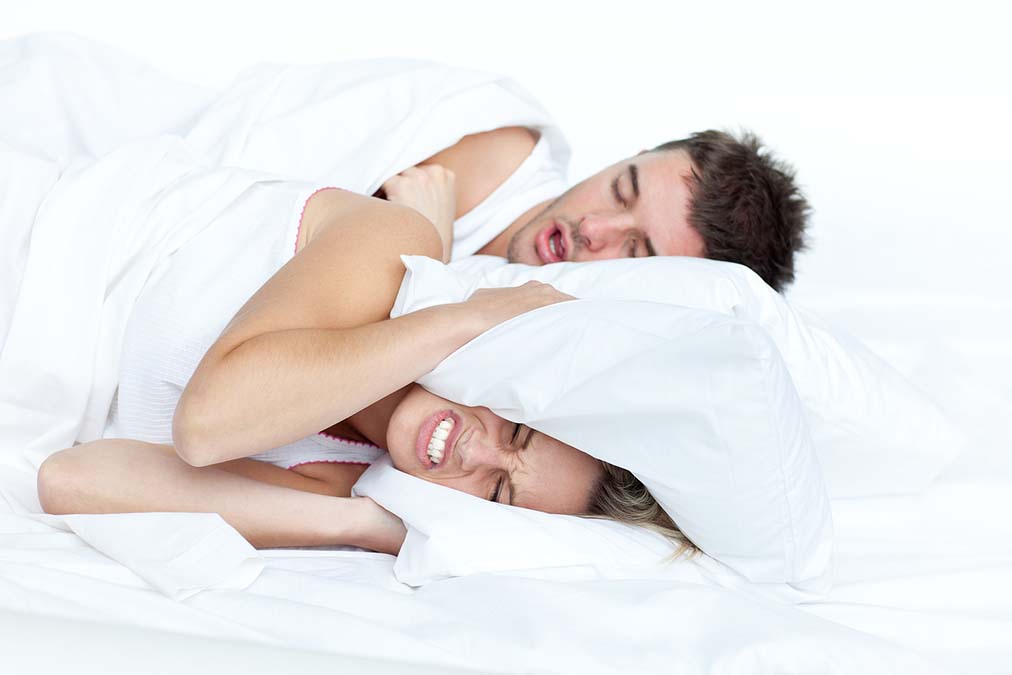 There are many well-known risk factors of snoring and sleep apnea. Obesity is one of them, and being a truck driver another.
There are many well-known risk factors of snoring and sleep apnea. Obesity is one of them, and being a truck driver another.
But your TV habits? That’s something new.
However, a new study in The European Respiratory Journal does prove that specific TV habits do drastically increase your risk of snoring and sleep apnea. Try cutting this habit and see what happens.
Previous studies have demonstrated that sedentary behavior and a lack of physical activity may contribute to sleep apnea by causing obesity, inflammation, and insulin resistance.
To investigate this further, a research team from Brigham and Women’s Hospital, Harvard Medical School, the Harvard T.H. Chan School of Public Health, and the University of Calgary conducted a large study.
They obtained information regarding 50,332 women from the Nurses’ Health Study (2002-2012), as well as 68,265 women from the Nurses’ Health Study II (1995-2013) and 19,320 men from the Health Professionals Follow-up Study (1996-2012). In other words, all of the subjects were medical professionals and were observed for at least 10 years.
These participants completed questionnaires every 2-4 years that included information about their television-watching hours, their time working, their time spent away from home, and their exercise habits. The information also included official diagnoses of sleep apnea.
This is what they found:
1. The most active participants (36 or more metabolic hours per week of physical activity) were 54% less likely to have sleep apnea than the least active participants (six or fewer metabolic hours per week of physical activity).
2. Participants who watched 28 hours or more of television per week were 71% more likely to have sleep apnea than those who watched four or fewer hours per week.
3. The participants with the least sedentary occupations were 49% less likely to have sleep apnea than those with the most sedentary occupations.
While it is understandable that sleep apnea sufferers may not want to be very active during the day because they are tired, they should remind themselves that they can break this cycle by simply forcing themselves to sit around a bit less, even if they start with gentle physical activity like walking.

 Multiple Sclerosis
Multiple Sclerosis Banishing Bronchitis
Banishing Bronchitis Gum Disease Gone
Gum Disease Gone Overcoming Onychomycosis
Overcoming Onychomycosis Neuropathy No More
Neuropathy No More The Prostate Protocol
The Prostate Protocol Brain Booster
Brain Booster
 Ironbound
Ironbound
 Solution for Shingles
Solution for Shingles
 The Bone Density Solution
The Bone Density Solution
 The Ultimate Healing Protocol
The Ultimate Healing Protocol
 The Parkinson's Protocol
The Parkinson's Protocol
 The Chronic Kidney Disease Solution
The Chronic Kidney Disease Solution
 Overthrowing Anxiety
Overthrowing Anxiety The Fatty Liver Solution
The Fatty Liver Solution The Hypothyroidism Solution
The Hypothyroidism Solution
 The End of Gout
The End of Gout The Blood Pressure Program
The Blood Pressure Program
 The Oxigized Cholesterol Strategy
The Oxigized Cholesterol Strategy
 Stop Snoring And Sleep Apnea Program
Stop Snoring And Sleep Apnea Program
 The Arthritis Strategy
The Arthritis Strategy The Vertigo & Dizziness Program
The Vertigo & Dizziness Program The 3-Step Diabetes Strategy
The 3-Step Diabetes Strategy Hemorrhoids Healing Protocol
Hemorrhoids Healing Protocol The Erectile Dysfunction Master
The Erectile Dysfunction Master Weight Loss Breeze
Weight Loss Breeze The IBS Program
The IBS Program The Insomnia Program
The Insomnia Program The Migraine and Headache Program
The Migraine and Headache Program The Neck Pain Solution
The Neck Pain Solution The Menopause Solution
The Menopause Solution The Ejaculation Master
The Ejaculation Master The TMJ Solution
The TMJ Solution The Acid Reflux Solution
The Acid Reflux Solution The Fibromyalgia Solution
The Fibromyalgia Solution The Psoriasis Strategy
The Psoriasis Strategy